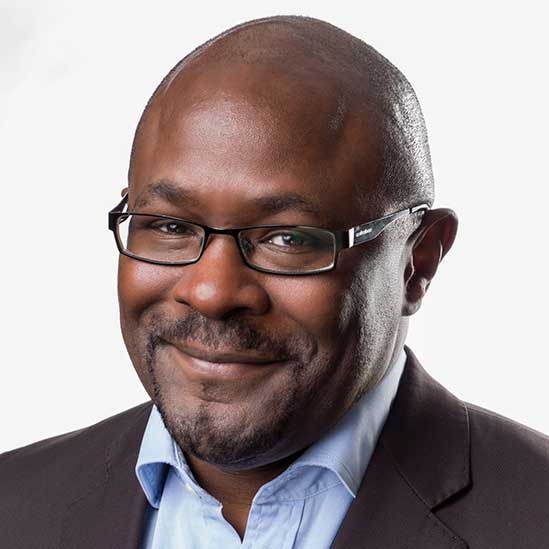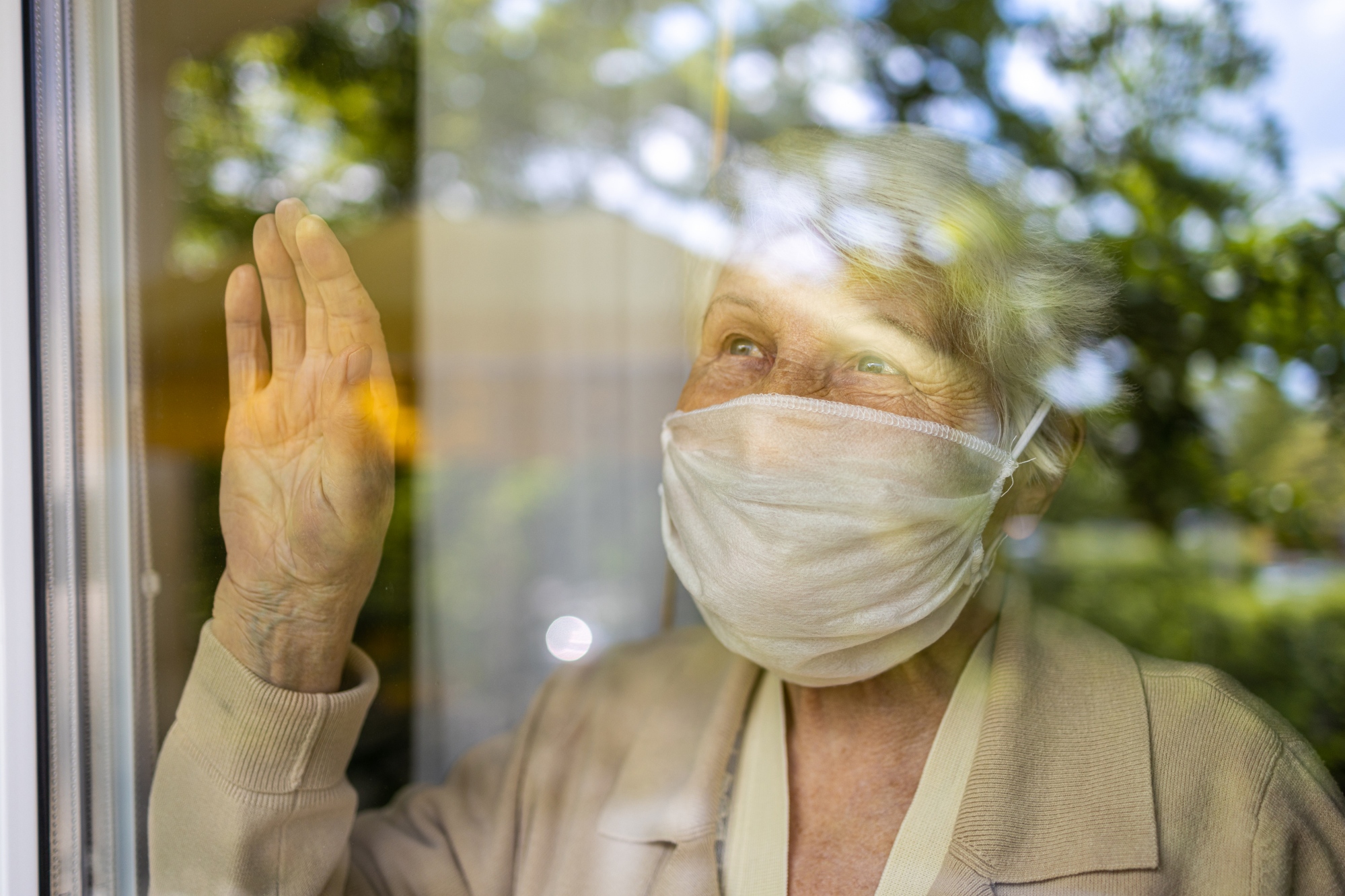An Interview with Dr. Kwame McKenzie
An Interview with Dr. Kwame McKenzie
By Rob Kirsic
December 2021

Dr. Kwame McKenzie is the CEO of the Wellesley Institute and is an international expert on the social causes of mental illness, suicide, and the development of effective, equitable health systems.
He is also the recipient of the 2021 OMSSA Champion of Human Services Award. OMSSA sat down with Dr. McKenzie for an interview to discuss the work of the Wellesley Institute and his insights and lessons learned during the COVID-19 pandemic.
This interview has been edited and condensed.
OMSSA: We are now two years into the COVID-19 pandemic, what has this time taught you about inequities in society when it comes to health?
Dr. Kwame McKenzie (KM): One of the things this virus and others have taught us is that our biggest defense is equity.
Viruses look for the easiest way to invade our societies. They find weakest parts and they multiply there. Inequity is our weakness and it is not surprising that marginalized populations facing health and social inequities such as people in long-term care, low-income groups and racialized groups have been targeted by the virus. They have been hardest hit. The way to minimize the impact of the virus is to decrease our weaknesses. That means we have to decrease inequities.
But another thing the virus has taught us is that as a society we are not good at learning.
COVID-19 should have reminded us that we need to look after the social determinants of health. Funding public services and supporting people who work in public service like your members is incredibly important. And on top of that, if people have healthy housing, have enough money to live a healthy life, feel valued and included in society and have good jobs that protect them, and give them sick pay and benefits so they are better protected from the impacts of pandemics then we are all safer. No one is safe unless everyone is safe.
But it is not clear we have learned that yet. There’s a disconnect between what we need to do and what we’ve actually done, and this I find very worrying.
OMSSA: Building on your point about what we didn’t learn, are there any lessons or recommendations that your research tells you that our members could be doing right now in their communities to help address what you’ve mentioned?
 KM: I would first say take a deep breath, pat yourself on the back, and pace yourself. Take a while to reflect on what you’ve done, because your members are running so hard that you don’t always realize all the great stuff they have accomplished. Municipal workers have been nimble and innovative and have gone further than others in order to protect people and no one is turning around and recognizing this. The other thing is to remember that everyone started this pandemic out thinking it was a sprint and it is not. It’s a marathon. If you continue to try to sprint through a marathon you will burn out. And we need you in the long-term, as well as the short-term.
KM: I would first say take a deep breath, pat yourself on the back, and pace yourself. Take a while to reflect on what you’ve done, because your members are running so hard that you don’t always realize all the great stuff they have accomplished. Municipal workers have been nimble and innovative and have gone further than others in order to protect people and no one is turning around and recognizing this. The other thing is to remember that everyone started this pandemic out thinking it was a sprint and it is not. It’s a marathon. If you continue to try to sprint through a marathon you will burn out. And we need you in the long-term, as well as the short-term.
Then I would say, think about what can be done strategically to protect the social sector. People talk about protecting the hospital sector but pumping energy and resources into the social sector is a good way to protect the hospital sector. The social sector is preventive, it decreases inequality and societal risk. We can get caught in thinking about just dealing with the problems that are in front of us rather than thinking about why they happen and what we can do to decrease those problems.
This sector can and should offer people the support they need, but there is an argument that we should also help advocate for changes in policy and help communities getting involved, organized and finding their voice because this is of fundamental benefit.
OMSSA: Mental health has been a huge issue during the pandemic. As we emerge from the pandemic, why is it important for governments and organizations to invest in psychological health and does it make good economic sense to do so?
 KM: There is no health without mental health, that’s pretty straight-forward. It is very difficult to think of any health condition or any social issue that is not impacted by mental health issues. The two are intertwined.
KM: There is no health without mental health, that’s pretty straight-forward. It is very difficult to think of any health condition or any social issue that is not impacted by mental health issues. The two are intertwined.
But there is also less wealth without mental health. Modern economies are no longer built only on people doing laboring or manufacturing jobs. The knowledge and service economies are key to our future. If you want people to be able to produce new thoughts and innovations, or you need them to do the service job work, you need them psychologically prepared to do them. This means we need to look after people’s minds as well as their bodies if we are going to build a better society and if we are going to have a sustainable recovery.
We used to talk about the focus on the importance of a country’s physical capital and human capital. These days people are thinking about mental capital. Mental capital is the sum total of the mental resources of a country that helps their society move forward. In a high-income country, it can be important for economic competitiveness. It is made up of three components – your IQ, your EQ (emotional intelligence), and your mental health. If you don’t have your mental health, it’s very difficult to deploy your IQ and EQ.
We have to deal with the echo pandemic of mental health problems which we are seeing. If we don’t start making some fundamental changes to protect the people’s mental health then we will not only be doing the wrong thing from a human perspective but we won’t have a solid foundation on which to build an economic future.
OMSSA: If I can carry on from that point, let’s say tomorrow you were given the task of solving this issue, what would that look like?
KM: I think we need a new social contract focused on mental health. We need to be considering how our social policies can be structured to protect our mental health and promote mental wellness. We also need properly funded mental health and social care services to ensure people have the supports they need. Developing a proper cross sector 10-year mental health strategy would help. We really need all players involved. Mental health at schools and colleges is key, mental health in the workplace is vital and fundamentally we need to understand how to push our society forwards without making stress levels intolerable. We have so many different groups involved in mental health but we do not have many plans that knit them together. We are currently less than the sum of our parts.
Here are four more specific things we could consider early.
 We know that if we want to build people’s mental resilience, there are five good practices that keep you mentally resilient: staying connected with friends and family by talking to them or seeing them, exercise, learning new stuff because it’s good for your head, mindfulness and being able to enjoy everyday things, and giving back by volunteering because it gets your head into a completely different state and moves you forward. But we do not set our policies and societies to facilitate people being able to have balanced lives. It is possible to start doing this.
We know that if we want to build people’s mental resilience, there are five good practices that keep you mentally resilient: staying connected with friends and family by talking to them or seeing them, exercise, learning new stuff because it’s good for your head, mindfulness and being able to enjoy everyday things, and giving back by volunteering because it gets your head into a completely different state and moves you forward. But we do not set our policies and societies to facilitate people being able to have balanced lives. It is possible to start doing this.
Another example is that we get stuck in thinking we should focus on producing workplaces that don’t injure people psychologically. And we should, but is that enough? Could we do more? Could we aim to produce workplaces where people feel like they’ve contributed and felt respected and supported? It is possible to create these sorts of good working environments.
We don’t have a healthy housing policy; we have a housing market. And the problem with the housing market is it doesn’t necessarily aim to produce homes for the maximum amount of people. Looking at our housing and homes policy, capping and stopping the excesses of the housing market and allowing, say for instance, municipal workers to live within a 15 or 20-minute commute of where they work, completely changes your health and mental health. I think it is time to re-think where we are going with housing.
Lastly, I would probably change how we structure our benefits programs to really deal with the cancer and shame that is poverty in a G7 country. How can a country with such a high GDP per capital leave millions of people in poverty? We have clear measures of income adequacy like our market basket measure, or measures of income that supports health like Wellesley’s Thriving Income we should use to ensure that no one falls below these levels.
OMSSA: Is there anything else you would like to share with our members?
 KM: I think every person in Canada should know there is something special here. When we went through the last recession it was tough in Canada but nowhere near as tough as other places.
KM: I think every person in Canada should know there is something special here. When we went through the last recession it was tough in Canada but nowhere near as tough as other places.
Canada, through the hard work of two groups mainly, the general population and people on the ground such as municipal workers and the third sector, has done very well at decreasing COVID-19 deaths. These deaths are not decreased just by hospitals, they’re decreased by keeping people out of hospital. If you’re looking across the world, Canada has done first-rate work on decreasing COVID-19 deaths. Unfortunately, if you look across the world, Canada has done a second-rate job of preventing deaths in long-term care.
One thing that is true, certainly in Ontario, is that municipally-run long-term care homes did better than private long-term care homes. I have a feeling some governments are going to pretend that everything went well. They will ignore this analysis and the fact that real change is needed. They will ignore that if we want to protect our seniors we may need less private and more public care.
The triumph of the pandemic in Canada is our people and public sector. I would suggest that how we build a new normal is to really think hard about building on what has gone well and what the true foundations of our resilience have been.
OMSSA: Thank you Dr. McKenzie.
About the Author
 Rob Kirsic is the Communications and Member Engagement Manager with OMSSA. Rob started with OMSSA in 2021 and has over 13 years of communications and public relations experience in the private, public, and not-for-profit sectors.
Rob Kirsic is the Communications and Member Engagement Manager with OMSSA. Rob started with OMSSA in 2021 and has over 13 years of communications and public relations experience in the private, public, and not-for-profit sectors.